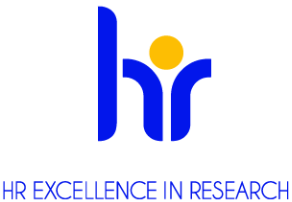Training
3 of the 40 C&C principles are related to the training of our researchers:
- Relationship with supervisors. Junior researchers have regular meetings with thesis supervisors.
- Supervision and management tasks. Senior researchers favour knowledge transfer and career development of junior researchers.
- Continuous professional training. All researchers undergo continuous training.
---
The University of Zaragoza organises various training activities aimed at promoting the continuous training of research staff (University of Zaragoza continuous training regulations). Our University has a Centre for Innovation, Training and Research in Educational Sciences (CIFICE), which offers a wide range of courses:
1. General Training Programme (2022-2023) 2.
2. Internationalisation
3. Other courses:
- Research ethics
- Effective presentation skills
- Ethics and experimentation in biomedical and veterinary research.
- Acquisition and assessment of transversal competences.
- Reflections and challenges in PhD studies: Fundraising in basic research, Research opportunities at Campus Iberus, Research opportunities in Europe.
- Scientific production at the University of Zaragoza.
- Scientific publication (open Access).
In addition, the Doctoral School offers transversal training activities for doctoral students. The courses are organised in different modules:
- Course module 1. Communication skills (e.g. open science and open access, etc.).
- Course module 2. Scientific information management.
- Course module 3. Career development, innovation and entrepreneurship.
- Course module 4. Relationship between research and society (e.g. research ethics, etc.).
- Course module 5. Instrumental and technical aspects.
- Course module 6. Conferences and/or interdisciplinary meetings for doctoral students.
- Course module 7. Additional courses (webinar training series in English, UNITA European project courses).
- Courses module 8: Conferences
- Courses module 9: Specialisation courses
- Courses module 10: Conferences and Interdisciplinary Doctoral Meetings
- On the other hand, the Doctoral School offers specific courses for each doctoral programme.
The University of Zaragoza, through the Scientific Culture Unit and the European Projects Office, participates since 2020 in the European Researchers' Night (S-TEAM Project (2020), GREEN9NIGHT Project (2021), G9-MISSIONS Project (2022)). These events allow University researchers (all categories participate, but especially MSCA researchers) to meet and interact with citizens through science shows, hands-on experiments, games, competitions, exhibitions and digital activities.
The European Projects Office of the University of Zaragoza has also organised several courses related to European Projects:
- Conference: Participation and funding opportunities for researchers and SMEs in Horizon Europe 21-January-2021.
- Seminar at the I3A Institute: Horizon Europe: MSCA Actions. May-2021. (OPE staff).
- Information day-Horizon Europe (on-line event) Framework Programme for Research and Innovation 2021-2027. 11- June- 2021. (Euradia Consultant)
- ERC ONLINE SEMINAR (ERC Starting, Consolidator and Advanced Grants [STG, COG, ADV]) 7-October-2021. (Halbert Research Consulting)
- Online training seminar on transversal aspects in Horizon Europe 26 and 27-10-2021. (talk2much consultancy).
- Training workshop "Keys to write a competitive proposal MSCA Doctoral Networks. 16 and 23 June 2022
- MSCA Postdoctoral Fellowships Conference 2022: Enhancing the creative and innovative potential of doctoral research staff) June 2022.
- Online training seminar on Open Science and Data Management and Protection in Horizon Europe. 23 March 2022
Finally, it is important to mention that the University of Zaragoza offers the Spanish as a Foreign Language Courses, dependent on the Vice-rectorate of Culture and Social Projection. The University of Zaragoza has been a pioneer in teaching Spanish to foreign students since 1927. It collaborates with numerous national and international institutions in the dissemination of the Spanish language. It is an Official Examination Centre for the DELE Spanish Diploma, the International Spanish Language Evaluation Service (SIELE) and the Spanish Constitutional and Sociocultural Knowledge Test (CCSE), by delegation of the Cervantes Institute.

